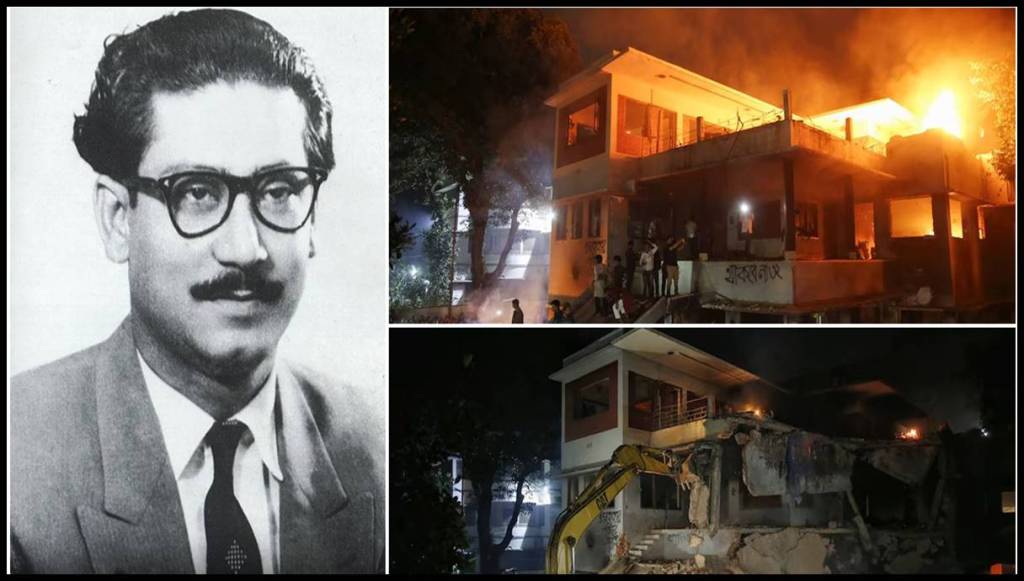Former Prime Minister of Bangladesh Sheikh Hasina, has leveled a strong accusation against interim government chief Mohammad Yunus, blaming him for transforming Bangladesh into a ‘terrorist state’ amidst ongoing violence.
Hasina, who has been in exile in India since August 2024 after her government was overthrown, made these claims during a virtual Zoom meeting with the widows of police officers killed in the violent protests that shook the country last year.
In the meeting, Hasina recounted the tragic events that led to the deaths of the police officers, pointing to a ‘conspiracy’ orchestrated by Yunus to remove her from power. “This is part of the same conspiracy to topple the government under which the Bangabandhu Memorial was demolished in Dhanmondi,” she said, referring to the destruction of the memorial to her father, Sheikh Mujibur Rahman, the father of the nation.
Hasina accused Yunus of unleashing ‘terrorists’ and worsening lawlessness in Bangladesh. “Nobel laureate Yunus has turned the country into a ‘terrorist state’ and those responsible for human rights violations will face the law one day,” she said.
The violence, which began with protests against a controversial quota system, escalated to demands for Hasina’s resignation. During this period, police stations were attacked, and several officers were killed. In an emotional moment, Hasina vowed, “I will return and avenge the deaths of our policemen.”
She also called out the actions of student leaders who supported violence, stating, “We have to end this anarchy.”
Hasina further pledged her commitment to seeking justice for the fallen officers and promised help to their families. “If I am alive, I will serve Bangladesh again,” she affirmed, signaling her intent to return and restore order.
Meanwhile, the interim government under Yunus has been taking action against police officers accused of brutality during last year’s protests, with 41 former officers arrested. The government has identified over 1,000 police personnel allegedly involved in violent actions.
In response to Hasina’s accusations, Bangladesh’s interim government reiterated its goal to have her extradited from India. Shafiqul Alam, Yunus’ press secretary, stated that bringing Hasina back to face trial in Bangladesh remains the government’s ‘top priority.’
The interim administration also highlighted a recent UN report accusing Hasina’s government of human rights violations, intensifying international pressure for her return. However, India has yet to provide a clear response to the extradition request.
BNP’s Demands from India
Hasina’s remarks have escalated the political crisis in Bangladesh, where divisions over her return and Yunus’ leadership continue to deepen. As tensions rise, the future of the Awami League and the broader political landscape of Bangladesh hangs in the balance.
In the midst of these developments, the Bangladesh National Party (BNP), led by former Prime Minister Khaleda Zia, has put forward three demands to India in a bid to improve bilateral relations:
A fair share of Teesta river water: The BNP has called for India to provide Bangladesh with its full and fair share of water from the Teesta River, a long-standing issue that remains unresolved between the two countries.
End of border violence: The BNP has demanded that India cease firing on Bangladeshi citizens along the border, an issue that has resulted in the deaths of many in recent years.
Abandonment of ‘big brother’ attitude: The BNP has urged India to abandon its ‘big brother’ approach towards Bangladesh, seeking a more balanced and respectful relationship between the two nations.


